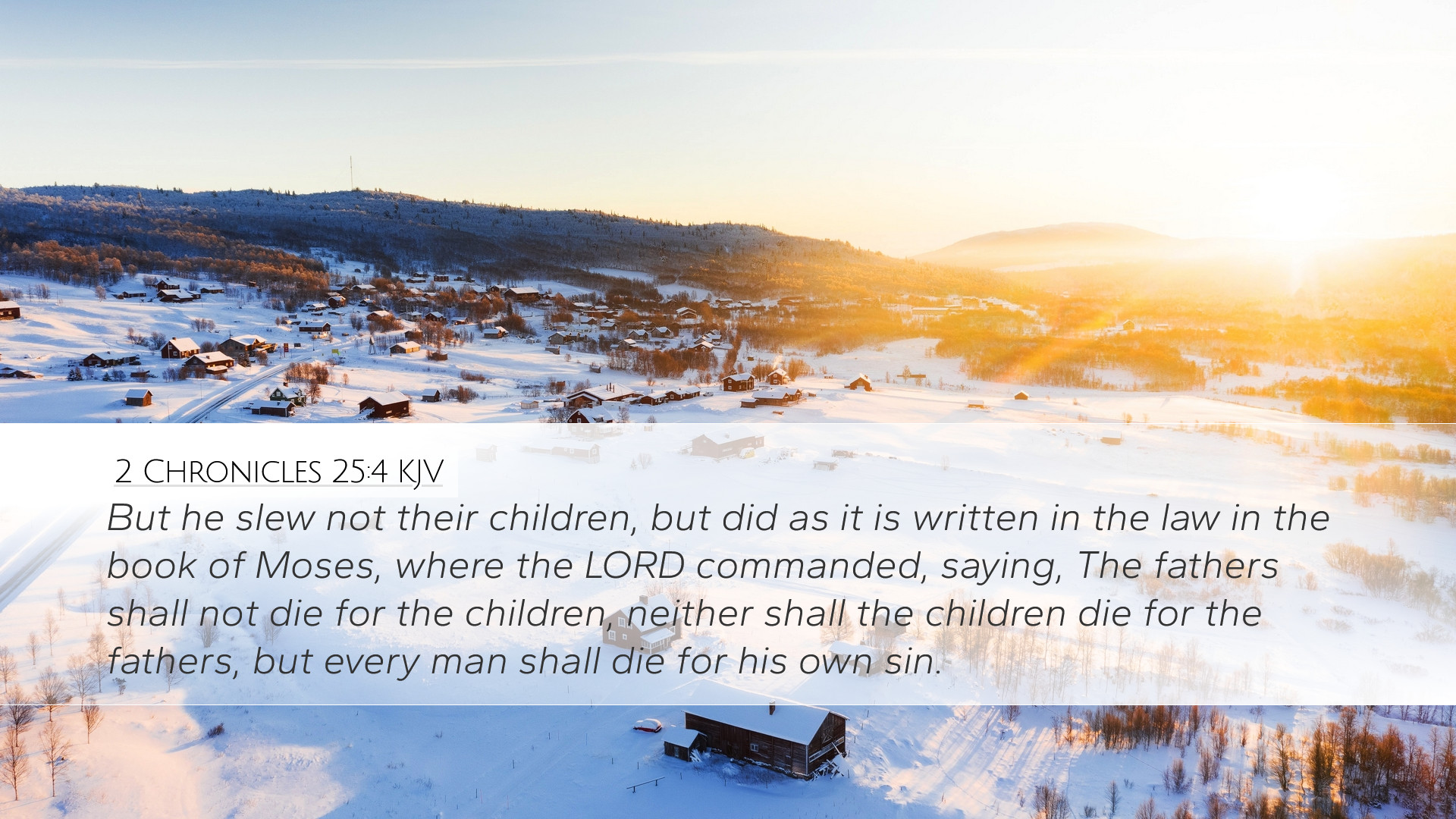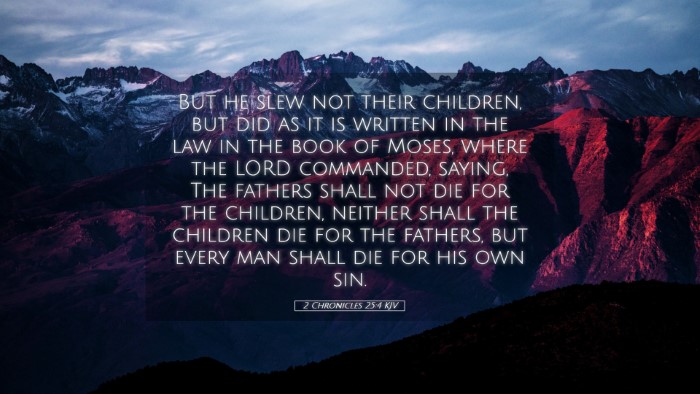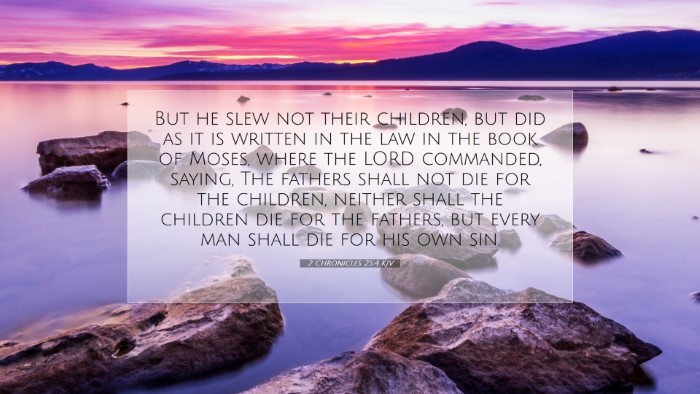Commentary on 2 Chronicles 25:4
Verse Overview: 2 Chronicles 25:4 states, “But he slew not their children, but did as it is written in the law in the book of Moses, where the Lord commanded, saying, The fathers shall not die for the children, neither shall the children die for the fathers, but every man shall die for his own sin.” This verse highlights the importance of individual responsibility and justice before God.
Historical Context
Background: This verse comes from a narrative regarding Amaziah, King of Judah, who exhibited both zeal in military endeavors and a flawed understanding of divine justice. Following the conquest of Edom, Amaziah sought to put into practice the principles of the law given through Moses.
The chronicler's account not only serves to record Amaziah’s actions but also reflects a broader theological theme present in the Old Testament—an emphasis on personal accountability for sin.
Thematic Insights
Individual Responsibility: The phrase “the fathers shall not die for the children” serves as a crucial theological assertion found in the Mosaic Law (Deuteronomy 24:16). This principle asserts that each individual is responsible for their own transgressions, which contrasts with the common ancient Near Eastern notion of hereditary guilt.
God’s Justice: Reflecting on God’s just nature, the observance of this law by Amaziah indicates an alignment with the divine character. In this light, Amaziah’s decision to spare the children of the Edomites shows a recognition of God's justice, fulfilling the ethical demand contained within the Law.
Commentary Insights
Matthew Henry's Commentary
Henry emphasizes that Amaziah’s adherence to the Law of Moses signifies both a commendable action and an indication of his God-given duties as a leader. By choosing not to execute innocent children alongside their fathers, Amaziah illustrates mercy—a significant divergence from the harsh and often brutal practices of surrounding nations.
Albert Barnes' Notes
Barnes notes that the stipulation of individual accountability signifies a departure from collective punishment prevalent in other cultures of that era. He further elaborates on the moral implications of this decision: “Amaziah’s compliance with this law was not only just but strategically wise, as it reflects a ruler conscious of justice and righteousness in the face of military successes.”
Adam Clarke's Commentary
Clarke provides a historical lens on this verse, stating, “This facet of justice was an integral part of the societal framework in Israel.” He emphasizes that Amaziah’s decision to spare the innocent illustrates a critical understanding of divine law and provides a model for just governance, reflecting the nature of God in leadership.
Practical Applications
For Pastors and Theologians: This verse serves as a reminder of the ethical responsibilities of leadership within both the church and the community. Pastors may draw upon this text to discuss the importance of justice and mercy in their ministry, encouraging congregants to reflect on their accountability before God.
For Students and Scholars: The verse provides rich material for theological inquiry into the nature of sin and redemption. Scholars may explore the implications of personal versus collective guilt and examine how this principle shapes contemporary understandings of justice within society.
Conclusion
In summary, 2 Chronicles 25:4 encapsulates a significant theological principle regarding individual accountability, reflecting the character of God and His justice. The insights from Matthew Henry, Albert Barnes, and Adam Clarke provide valuable perspectives that enhance understanding and application of this ancient wisdom for modern readers and leaders.


